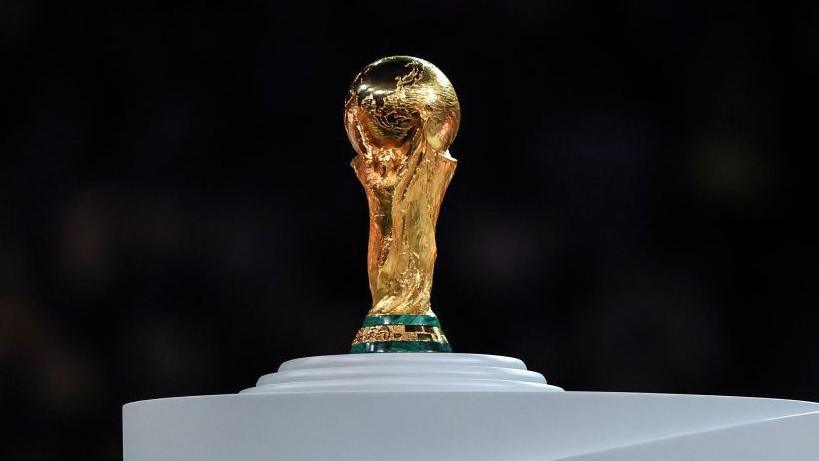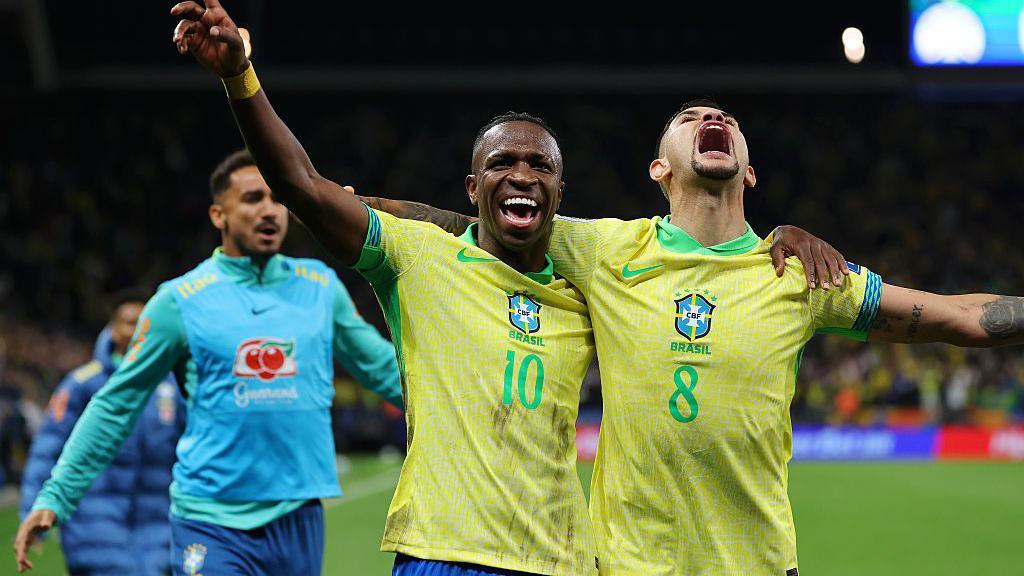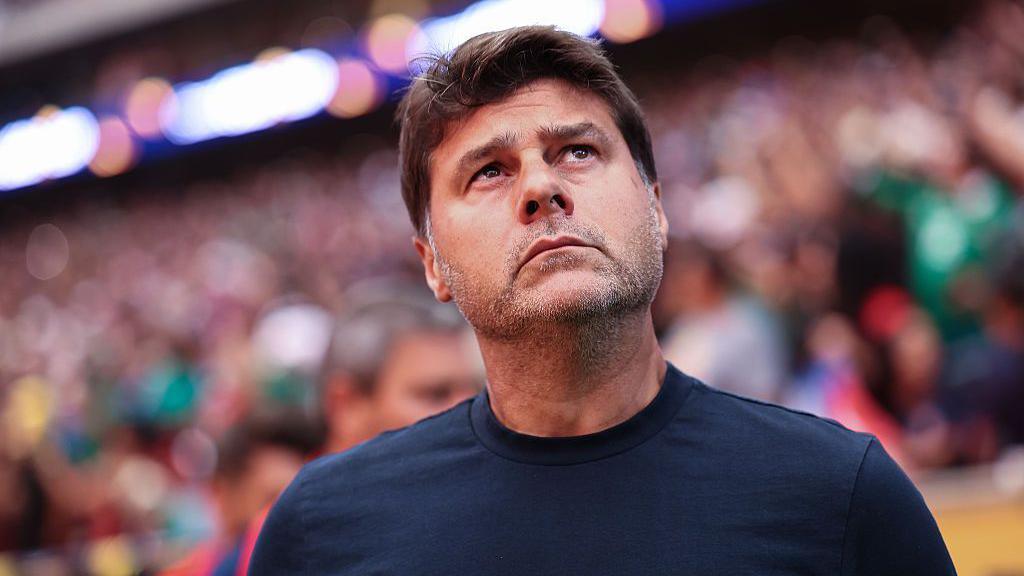Which countries have qualified for World Cup?

- Published
Five more European countries sealed their spots at the 2026 World Cup on Tuesday.
Austria, Belgium, Scotland, Spain and Switzerland all confirmed spots at next year's tournament as qualification group winners.
In total, 42 teams have now qualified for the competition, which is being hosted across Canada, Mexico and the United States.
Teams through to 2026 World Cup
Hosts: Canada, Mexico, United States
Africa: Algeria, Cape Verde, Egypt, Ghana, Ivory Coast, Morocco, Senegal, South Africa, Tunisia
Asia: Australia, Iran, Japan, Jordan, Qatar, Saudi Arabia, South Korea, Uzbekistan
Europe: Austria, Belgium, Croatia, England, France, Germany, Netherlands, Norway, Portugal, Scotland, Spain, Switzerland
Oceania: New Zealand
South America: Argentina, Brazil, Colombia, Ecuador, Paraguay, Uruguay
North and Central America and the Caribbean: Curacao, Panama and Haiti
When is the 2026 World Cup draw?
- Published8 hours ago
How will World Cup play-offs be determined?
- Published18 November

The 2026 World Cup will take place in Canada, Mexico and the United States from 11 June to 19 July
How does World Cup qualifying work?
Each of Fifa's six confederations use different methods of qualification to determine which nations qualify for the World Cup.
Oceania is the only continent to have completed its direct qualification process for next year's World Cup.
Of the 48 teams at the 2026 tournament, three places are given to the host nations and 43 are earned via direct qualification from the six confederations.
The other two spots are determined by intercontinental play-offs.
Europe
Qualifying places: 16
Teams already through: Croatia, England, France, Germany, Netherlands, Norway, Portugal, Austria, Belgium, Switzerland, Scotland, Spain
Teams into play-offs: Slovakia, Kosovo, Denmark, Turkey, Republic of Ireland, Poland, Bosnia, Italy, Ukraine, Wales, Czech Republic, Albania, Romania, Sweden, North Macedonia, Northern Ireland
There were 12 groups and the winners of each qualified for the World Cup. The 12 runners-up go into play-offs alongside the four best-ranked Uefa Nations League group winners who have not already qualified, and they contest four extra places.
Europe is the only continent that does not have a team in the intercontinental play-offs.
Qualifying started in March 2025 - with some teams not even playing their first qualifiers until September because of the Nations League.
South America

Brazil are the only nation to have featured at every World Cup in the competition's history
Qualifying places: Six, plus one into intercontinental play-offs
Teams already through: Argentina, Brazil, Colombia, Ecuador, Paraguay, Uruguay
Intercontinental play-offs: Bolivia
South American qualifying comprises a big group involving all 10 teams playing 18 games each, and the process started in September 2023.
The top six all reach the World Cup, with the side in seventh place going into the intercontinental play-offs.
With group qualifying now over, Bolivia beat already-qualified Brazil 1-0 in the final round of games to reach the intercontinental play-offs.
Asia
Qualifying places: Eight, plus one into intercontinental play-offs
Teams already through: Australia, Iran, Japan, Jordan, Qatar, Saudi Arabia, South Korea, Uzbekistan
Asian qualifying started in October 2023 with the lower-ranked teams in action.
In the third round, the top two teams in three different groups qualified automatically.
Australia, Iran, Japan, Jordan, Qatar, Saudi Arabia, South Korea and Uzbekistan have secured their places.
One other side could progress via the intercontinental play-offs, with Iraq beating UAE in an Asia play-off in November.
Africa
Qualifying places: Nine, plus one into intercontinental play-offs
Teams already through: Algeria, Cape Verde, Egypt, Ghana, Ivory Coast, Morocco, Senegal, South Africa, Tunisia
Intercontinental play-offs: DR Congo
There were nine African groups of World Cup qualifying, each with six teams, which started in November 2023.
The top team from each group went through automatically - with Algeria, Cape Verde, Egypt, Ghana, Ivory Coast, Morocco, Senegal, South Africa and Tunisia guaranteeing their places.
The best four runners-up went into play-offs in November for the chance to earn a spot in the intercontinental play-offs.
DR Congo beat Nigeria in the final of that.
North, Central American and Caribbean

Mauricio Pochettino will lead the United States in their first World Cup as a host nation since 1994
Qualifying places: Six (including three hosts), plus two into intercontinental play-offs
Teams already through: Panama, Curacao and Haiti - Canada, Mexico and United States automatically as co-hosts
The Concacaf qualifying has a different look to usual, with three of their biggest hitters not involved as they have qualified as hosts, but plenty of spots are still up for grabs.
Twelve teams were involved in a third round of qualifying.
The winners of each group go to the World Cup and the two best-ranked runners-up - Jamaica and Suriname - going into the intercontinental play-offs.
Oceania
Qualifying places: One, plus one nation into intercontinental play-offs
Teams already through: New Zealand
Oceania qualifying has already ended - with New Zealand beating New Caledonia 3-0 in the final.
New Zealand go through to the World Cup automatically, as a result of the expanded World Cup. Oceania usually only gets a play-off spot.
New Caledonia, a French overseas territory, will take part in intercontinental play-offs in March 2026 - featuring teams from Africa, Asia, South America and North America - with two out of six teams going through.
This article is the latest from BBC Sport's Ask Me Anything team.
What is Ask Me Anything?
Ask Me Anything is a service dedicated to answering your questions.
We want to reward your time by telling you things you do not know and reminding you of things you do.
The team will find out everything you need to know and be able to call upon a network of contacts including our experts and pundits.
We will be answering your questions from the heart of the BBC Sport newsroom, and going behind the scenes at some of the world's biggest sporting events.
Our coverage will span the BBC Sport website, app, social media and YouTube accounts, plus BBC TV and radio.